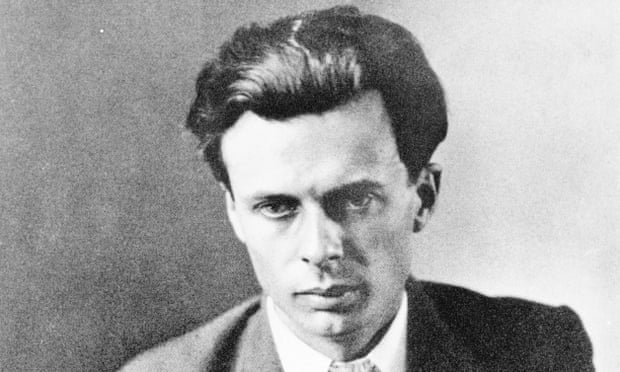A really efficient totalitarian state would be one in which the all-powerful executive of political bosses and their army of managers control a population of slaves who do not have to be coerced, because they love their servitude.
~ Huxley Brave New World
Well, duty's duty. One can't consult one's own preference. I'm interested in truth, I like science. But truth's a menace, science is a public danger. As dangerous as it's been beneficent. It has given us the stablest equilibrium in history. China's was hopelessly insecure by comparison; even the primitive matriarchies weren't steadier than we are. Thanks, I repeat, to science. But we can't allow science to undo its own good work. That's why we so carefully limit the scope of its researches – that's why I almost got sent to an island. We don't allow it to deal with any but the most immediate problems of the moment. All other enquiries are most sedulously discouraged.
~ Huxley ("The Controller," in Brave New World, Ch. 16)
So long as men worship the Caesars and Napoleons, Caesars and Napoleons will duly arise and make them miserable.
~ Huxley (Ends and Means, Ch. 8)
Today is the anniversary of the birth of English novelist Aldous Huxley (wiki) (1894-1963*). Although he is now remembered largely for his dystopian novel Brave New World (wiki), I was most impressed when I first ran across him, back in the 60's and 70's, by Island and by his exploration of mescaline-induced experiences in Doors of Perception**.
The grandson of famed biologist and evolution proponent T. H. Huxley (1825-1895), Aldous attended Eton and Oxford to study English literature. His poor eyesight kept him out of World War I, and he embarked on a writing career while still an undergraduate. Subsequently, he joined the Bloomsbury set and turned out the first of his novels, Crome Yellow (1921) and a long series of essays on wide-ranging topics.
 |
| At the Central London Hatchery and Conditioning Centre's Embryo Store |
His novels were often inspired by his fear of the dehumanizing potential of scientific progress (as in Brave New World) and his life-long pacifism (as in Eyeless in Gaza, 1935). In 1937, Huxley emigrated to the United States and spent the rest of his life in southern California, where he dabbled unsuccessfully in screen-writing. Late in life, he developed a passionate interest in the Vedic philosophies of India and experimented with psychodelic drugs.
*Huxley, along with C.S. Lewis, actually died on November 22, 1963 - the same day that JFK was assassinated.
** I re-read Doors of Perception (supposedly, by the way, the inspiration for the name of the band The Doors) several times over the years, for reasons that I will no longer admit to.
Here's Huxley narrating Brave New World (audio from a 1979 LP of a 1956 CBS Radio Workshop broadcast):
From the website of Letters of Note, a fascinating 1949 letter from Huxley to Orwell on the subject of Nineteen Eighty-Four (read the whole thing)
Within the next generation I believe that the world's rulers will discover that infant conditioning and narco-hypnosis are more efficient, as instruments of government, than clubs and prisons, and that the lust for power can be just as completely satisfied by suggesting people into loving their servitude as by flogging and kicking them into obedience. In other words, I feel that the nightmare of Nineteen Eighty-Four is destined to modulate into the nightmare of a world having more resemblance to that which I imagined in Brave New World. The change will be brought about as a result of a felt need for increased efficiency. Meanwhile, of course, there may be a large-scale biological and atomic war --- in which case we shall have nightmares of other and scarcely imaginable kinds.
And here's an infographic of Huxley Vs Orwell (Huxley's Brave New World (wiki) vs Orwell's Nineteen Eighty-Four (wiki):



How ironic that he succumbed to narcotizing himself and preaching the wonders of disordering one's senses with drugs -- until his writing became so incoherent that thankfully he ceased to make sense to anyone other than those similarly gorked into mindlessness.
ReplyDelete